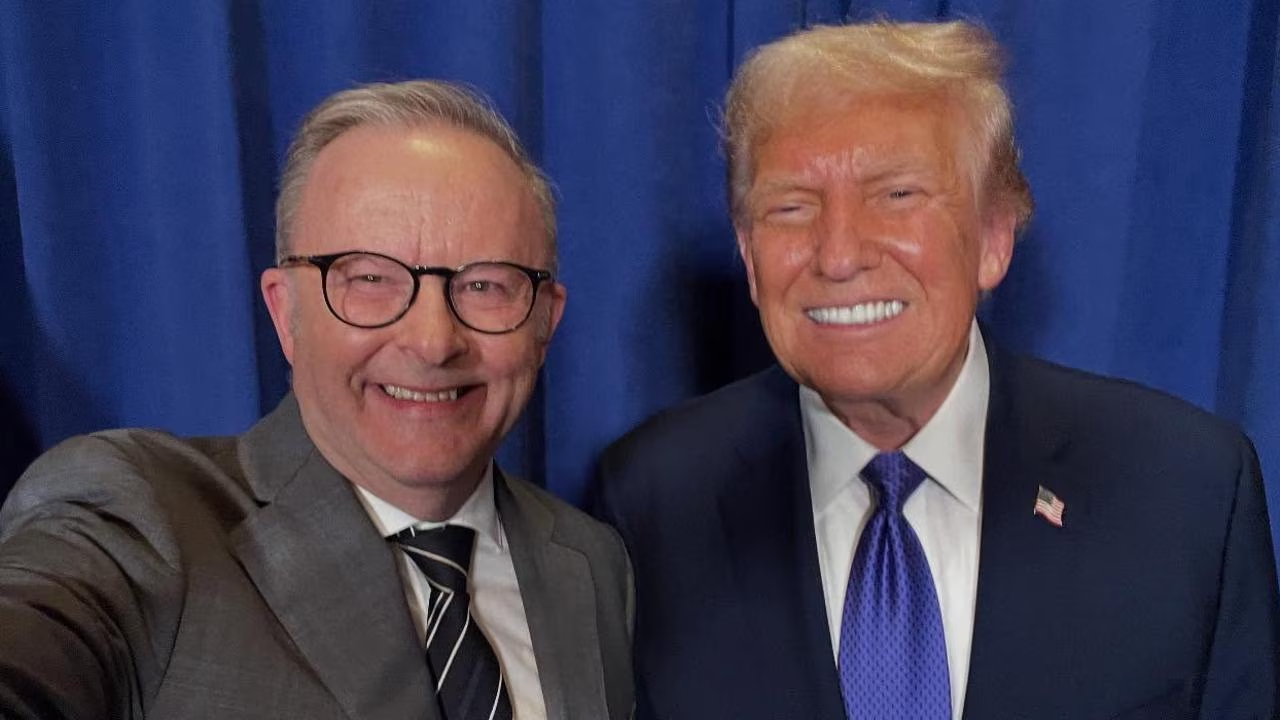The Inside Word

A prophet in other lands: Albanese’s global tour made possible by Australia’s compulsory preferential voting system
Thirty years ago, I entered Parliament in the 1996 Howard election landslide. Under Paul Keating, Labor had been reduced to a rump, and one of the few ALP members to enter Parliament was the member for Grayndler, Anthony Albanese.
Ironically, the Howard victory delivered a 94-seat majority — the same number as the ALP majority this year – but with one critical difference: Under Australia’s compulsory preferential system, the Liberal Party has been reduced to a critically endangered species, holding its lowest ever number of seats.
Back in 1996, I was 34 years old, while the now Prime Minister was 33. In many ways we were the antithesis of each other. Anthony Albanese was and remains a creature of the ALP left machine, while the other Anthony – me – was a newly minted third-generation politician from the rural right, the Nationals. We occupied opposite ends of the political spectrum.
As expected, there was plenty of sparring between us in those early years, with Anthony Albanese’s principal task being to undermine marginal seat members like me and, by consequence, the centre-right Howard Government.
My parliamentary career ended many years ago, even though I earned 47 per cent of the primary vote. Alas, under the compulsory preferential system, the changing demographics of northern NSW meant it was not enough to save my skin.
Fast forward to 2025, and Prime Minister Albanese is on a global roll – a mid-power leader among centre-left governments. And look how far he has come, even making an appearance at the UK Labour Party Conference in Liverpool in an attempt to save UK PM Sir Keir Starmer from being knifed by his own party.
Indeed, across much of the West, most left-wing governments are on the decline, with resurgent right-wing ideologies capitalising on three key issues: immigration, cost-of-living, and climate change policies. The prime examples are playing out in the United States, UK and France, where extremism on both the left and the right is eroding the very social and political fabric that underpins these leading democracies.
And it is even more remarkable that the only real fire-and-brimstone criticism of the PM has not come from Australia’s Opposition, but from a foreign political leader of a small opposition party – Nigel Farage’s Reform UK. Farage took aim at Albanese, accusing him of being “out of touch” and “peddling grievance politics”.
Even the PM’s recent visit to New York and his address to the United Nations, praising his government’s position on Palestine and climate change initiatives, managed to avoid the direct wrath of the Trump Administration. Perhaps that ire is merely postponed until he finally has his sit-down meeting with the President later this month.
Back home, the Opposition is unable to prosecute an argument against the government, with political division rife within the Liberal Party.
You would think there were multiple opportunities for the Opposition to nail the government. Most notably, the government’s totally unrealistic new climate targets, which, if realised, will have a profound impact on Australia’s energy and manufacturing base.
One of the main reasons the Albanese Government continues to ride the wave of ascendancy at home and abroad is because of our voting system.
Unlike the UK, which uses a first-past-the-post system, or the US with its Electoral College, or France with its two-round system, none of these leading democracies has adopted compulsory voting. In other words, only those motivated to vote turn up.
If Australia used first-past-the-post, I would still be an MP, but under compulsory preferential voting all votes must be counted and distributed. The winning candidate must secure at least 50.1 per cent of the vote, which contrasts with the UK where Reform is now polling above 30 per cent and, on current numbers, could form government.
Another consequence of compulsory preferential voting is that to win 50.1 per cent of the vote, you have to win the centre, which means moderation works better than extremism.
There are, of course, downsides to this system – just ask the Liberal Party, which thanks to preferential voting has lost 34 seats in the past two election cycles to the Teals, Greens and the ALP. No wonder they are in a world of pain.
The upside is that it produces a less fractured society that cannot be captured by the far-right or the far-left – political forces now shaping the USA, UK and France.
And so, thanks to compulsory preferential voting, in the last federal election the ALP, which only received 34.6 per cent of the primary vote, boosted its total to 55.2 per cent (TPP).
The Australian voting system has allowed the PM to look like a hero on the world stage – a prophet in a foreign land – even backing the UK Prime Minister to his own party.
And it is this very voting system that has ensured a centre-left leader like Anthony Albanese can project Australia’s voice on an increasingly polarised world stage.


